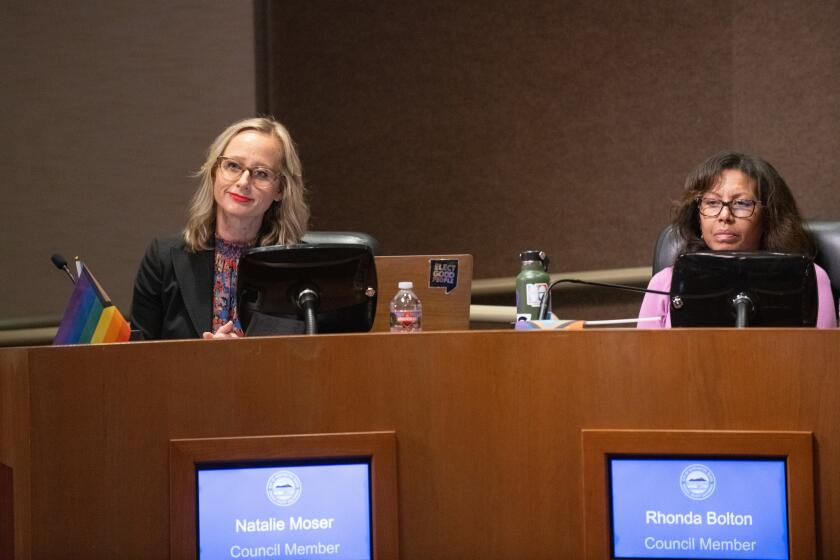Commentary: Don’t focus on college rankings lists, which are misleading and easily manipulated by colleges
When the college admissions scandal news broke, we called one another in extreme concern, lamenting the crazy circus that our beloved profession has become as a result of a hyper-competitive college admissions landscape coupled with inappropriate parenting madness.
But alongside our shock, echoed by so many around the country, at overreaching parents who resorted to fraud and bribery to help their kids get into college, something more important — more positive — emerged from our conversation.
As we reflected upon our combined 25 years as private college counselors, we recognized a rapidly emerging trend: parents who are eagerly searching for tools as they grappled with helping their over-stressed and over-programmed kids succeed and be happy during their tween and teenage years.
We are mad at the behavior of parents of teens — and ultimately at the pressure put on these teens in the college admissions process—and daily we witness firsthand what that pressure has done to parents and students alike. A 2017 study conducted by the National Institute of Mental Health found that 3.2 million teens — 13.3% of the teenage population — had experienced a major depressive episode during the previous year.
Our forthcoming book’s focus on parenting behavior in a competitive academic landscape is intended to help remedy this crisis and to help teens survive these difficult years still happy, productive and intact rather than frazzled, depressed and burned out.
We have seen so much of the bad. We have observed too many parents who talk for their children and kids who have no opinions, parents who are inflexible and kids who shy away from them, parents who get too caught up in the name-brand schools and kids who are unable to find the best fit. We have seen the consequences when parents behave swell-headed, bragging about the status that comes when their child attends a highly ranked school and appearing disappointed when their child attends a less well-known school.
We espouse a student’s exploration of the world around them and have seen too many times parents who can’t manage to get out of the way long enough to let their children experience where their passions can lead.
But we have also seen so much of the good. We have seen parents who trust and kids who reciprocate, parents who respect and kids who likewise respect, parents who are present and who take the time to get to know their children — and in turn kids who feel valued and have the room to achieve their wildest dreams.
Our goal is to help parents better understand their position in their kids’ middle and high school years, ultimately culminating in the college admissions process — a role that doesn’t cross inappropriate blurry lines, a role that models, cheerleads and trusts, as opposed to a role that advocates for their child, or one that forces, coddles and controls.
As parents help their teens navigate the complicated academic landscape that has become a reality, we encourage them to practice appropriate parenting behavior:
- Praise your kids’ effort rather than the outcome of their tests, sports games or performances. Don’t praise the A; instead praise the effort that it took to get the A.
- Don’t focus on college rankings lists, which are misleading and easily manipulated by colleges; relying heavily on them can result in your student missing out on discovering great fit schools.
- Don’t blame yourself if your budget cannot afford expensive summer programs. Activities and connections can be found for a fraction of the cost through your local community centers, religious groups or college campuses.
Parenting is hard, confusing and agonizing. And exciting, full of possibility and most of all, a learning process. We are no strangers to the difficulty of raising children during these formative years, especially when coupled with an incredibly competitive college admissions landscape.
Cindy Muchnick is an author, speaker and semi-retired educational consultant who practiced in Newport Beach for 15 years and now lives in Menlo Park.
Jenn Curtis owns FutureWise Consulting, a college counseling and test prep company in Irvine.
Support our coverage by becoming a digital subscriber.
How to get published: Email us at john.canalis@latimes.com. All correspondence must include full name, hometown and phone number (for verification purposes). The Pilot reserves the right to edit all submissions for clarity and length.
All the latest on Orange County from Orange County.
Get our free TimesOC newsletter.
You may occasionally receive promotional content from the Daily Pilot.



